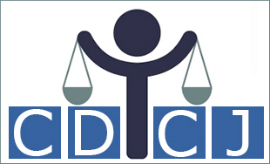An international conference jointly organised by the Council of Europe, through the European Committee on Legal Co-operation, and the United Nations Refugee Agency (UNHCR) will examine how member states in Europe can best address the problem of statelessness and foster opportunities to rally collective efforts to eradicate it. The event, taking place on 24 September both in Strasbourg and virtually, will include high-level speakers, senior representatives of governments of member States, national authorities with specific expertise in nationality and statelessness issues, judges, representatives of international and regional organisations, civil society organisations and academia, and stateless individuals.
According to the UNHCR there are more than 535,000 stateless persons in Europe. Not having a nationality impacts negatively on their access to education, employment, healthcare, housing and freedom of movement.
The conference will serve as a platform for exchange of good practices and experiences, including in the area of identification and protection of stateless persons, prevention and reduction of the risk of statelessness in Europe, and prevention and reduction of childhood statelessness, as well as related topics, building on the conclusions of the preceding technical meetings of experts on 23 September.
One key aim is to discuss, through peer to peer and multi-stakeholder dialogue, good practices and policy approaches in this area to support and promote the implementation or the ratification of the European Convention on Nationality (ETS No. 166), the Convention on the avoidance of statelessness in relation to State succession (CETS No. 200); the UN Convention Relating to the Status of Stateless Persons (1954) and the UN Convention on the Reduction of Statelessness (1961).



